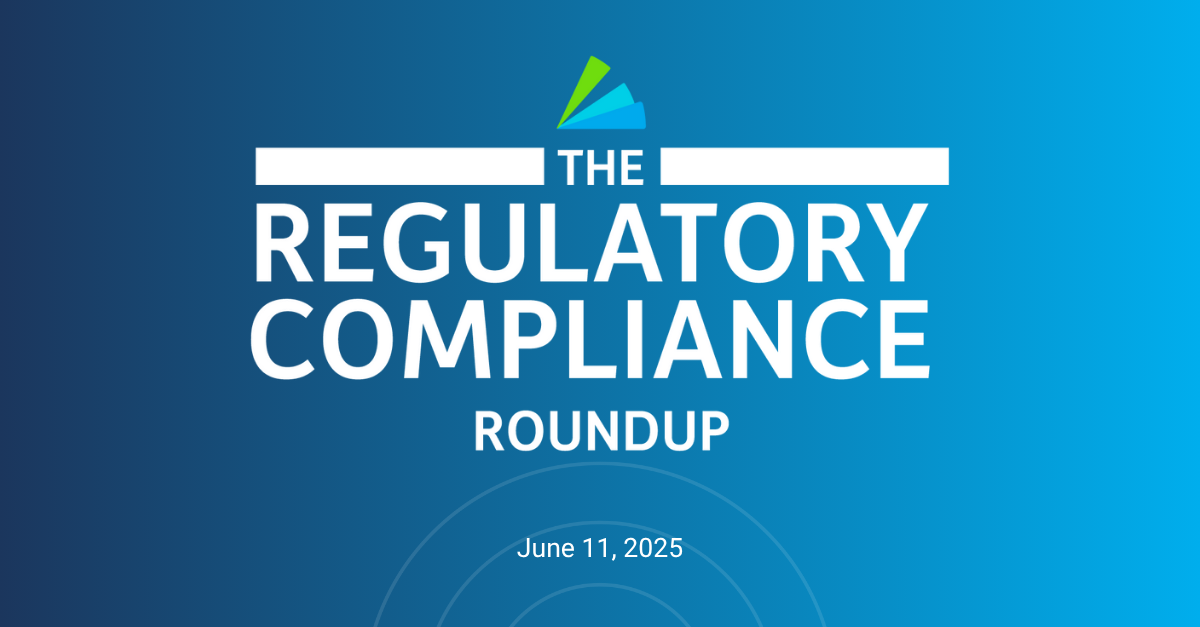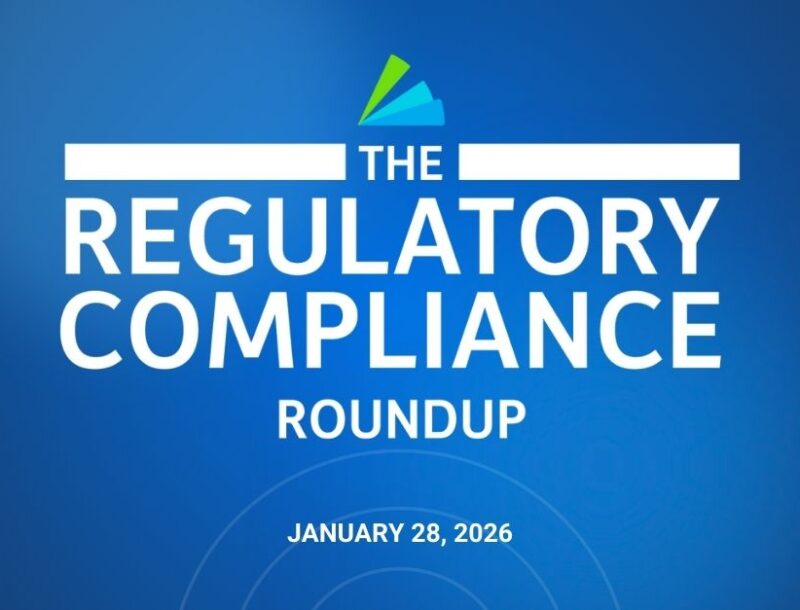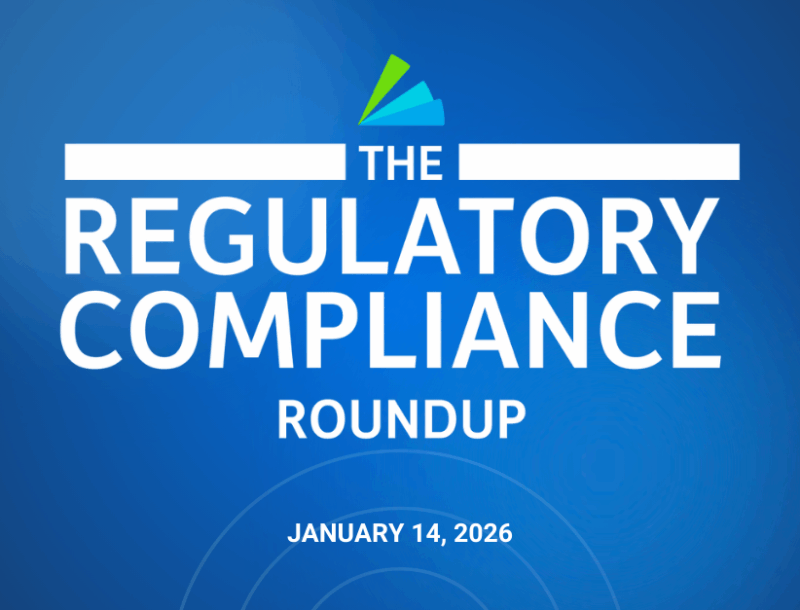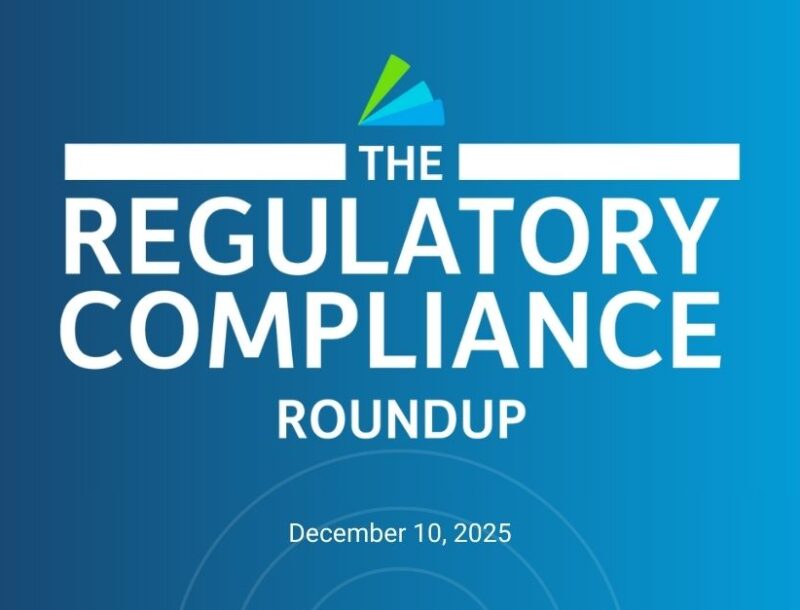The Roundup: The OCC’s Strategic Agenda, Maryland Enacts EWA Legislation, and Marketing Compliance Tech as a Strategic Investment

Welcome to the PerformLine Regulatory Compliance Roundup, home of the latest news, articles, and reports from our industry, curated for you. Let’s get into it.
In this edition: OCC outlines fintech-friendly regulatory agenda, CFPB seeks to vacate its own Section 1033 data-sharing rule, Maryland enacts earned wage access law with strong consumer protections, AI-driven compliance costs surge amid data privacy demands, enforcement actions heighten pressure on BaaS models, and why marketing compliance tech is now a strategic must-have.
Do you want to be the first to know when the Regulatory Roundup is released? Subscribe to never miss an email and follow us on LinkedIn for even more updates on marketing compliance.
Acting Comptroller of the Currency Discusses Regulatory Agenda
In his June 3, 2025 remarks at the U.S. Chamber of Commerce Capital Markets Forum, Acting Comptroller of the Currency Rodney E. Hood outlined the OCC’s strategic initiatives to modernize the U.S. banking system. Emphasizing the importance of innovation, Hood detailed efforts to accelerate bank-fintech partnerships through tools like regulatory sandboxes and the Office of Financial Technology. He highlighted the OCC’s commitment to responsible engagement with digital assets, advancing financial inclusion, and modernizing regulations to foster growth. These initiatives aim to ensure that the federal banking system remains resilient, dynamic, and capable of supporting America’s economic vitality in a rapidly evolving financial landscape.
CFPB Asks Court to Vacate Section 1033 Data Sharing Rule
The Consumer Financial Protection Bureau (CFPB) has petitioned a federal court to vacate its own Section 1033 data-sharing rule, citing legal overreach and procedural flaws. Implemented in 2024, the rule mandated that financial institutions provide consumers—and their authorized third parties—access to personal financial data via developer interfaces, prohibited data access fees, and imposed strict privacy controls. The CFPB now contends that the rule unlawfully restricted banks from recovering compliance costs and exceeded the agency’s statutory authority by broadly regulating open banking.
Significant Stat: 20+ Hours Saved: With marketing compliance technology, SMBs can save 20+ hours per week on manual review efforts. Read more
Maryland Enacts Earned Wage Access Legislation
Maryland has enacted a comprehensive law regulating earned wage access (EWA) services, effective October 1, 2025. The legislation classifies certain EWA offerings as loans under the Maryland Consumer Loan Law, imposing licensing requirements, fee caps, and mandatory consumer disclosures. Providers must offer at least one no-cost access option and are prohibited from charging interest, late fees, or using debt collection practices. The law also mandates that tipping is voluntary, with a default tip of $0, and requires reimbursement for overdraft fees caused by EWA transactions.
Data Privacy, Compliance Spend Rises Alongside AI Efforts
U.S. companies are sharply increasing compliance investments—up 71% year over year—as they confront regulatory challenges tied to AI, according to a Blancco report. Globally, over half of organizations reported compliance budget hikes, averaging 46%, to keep pace with evolving data privacy laws and governance expectations. AI adoption has introduced new compliance pressures, including managing data sprawl and adhering to stricter data handling rules. These trends are driving demand for more robust data management, labeling, and policy enforcement to stay ahead of regulatory scrutiny.
3 Takeaways as Enforcement Actions and Data Breaches Roil BaaS Models
Enforcement actions and data breaches are putting Banking-as-a-Service (BaaS) models under heightened regulatory scrutiny, exposing major compliance gaps. Regulators are demanding stronger third-party risk management, independent testing, and improved oversight of FinTech partnerships. Limited examiner capacity adds pressure, making self-regulation essential. As fund flows grow more complex, clear reconciliation and compliance controls are now critical for BaaS participants.
Why Marketing Compliance Technology is a Strategic Investment
Marketing compliance technology is increasingly recognized as a strategic investment rather than a mere operational expense. Automated tools streamline compliance reviews, enabling faster campaign approvals and reducing the risk of costly regulatory penalties and reputational damage. With state regulators intensifying scrutiny and private lawsuits on the rise, robust compliance systems are essential for maintaining consumer trust and facilitating growth. Platforms like PerformLine provide centralized oversight across various channels, ensuring consistent adherence to regulatory and brand standards. Embracing such technology not only mitigates compliance risks but also positions companies for scalable and efficient expansion.


